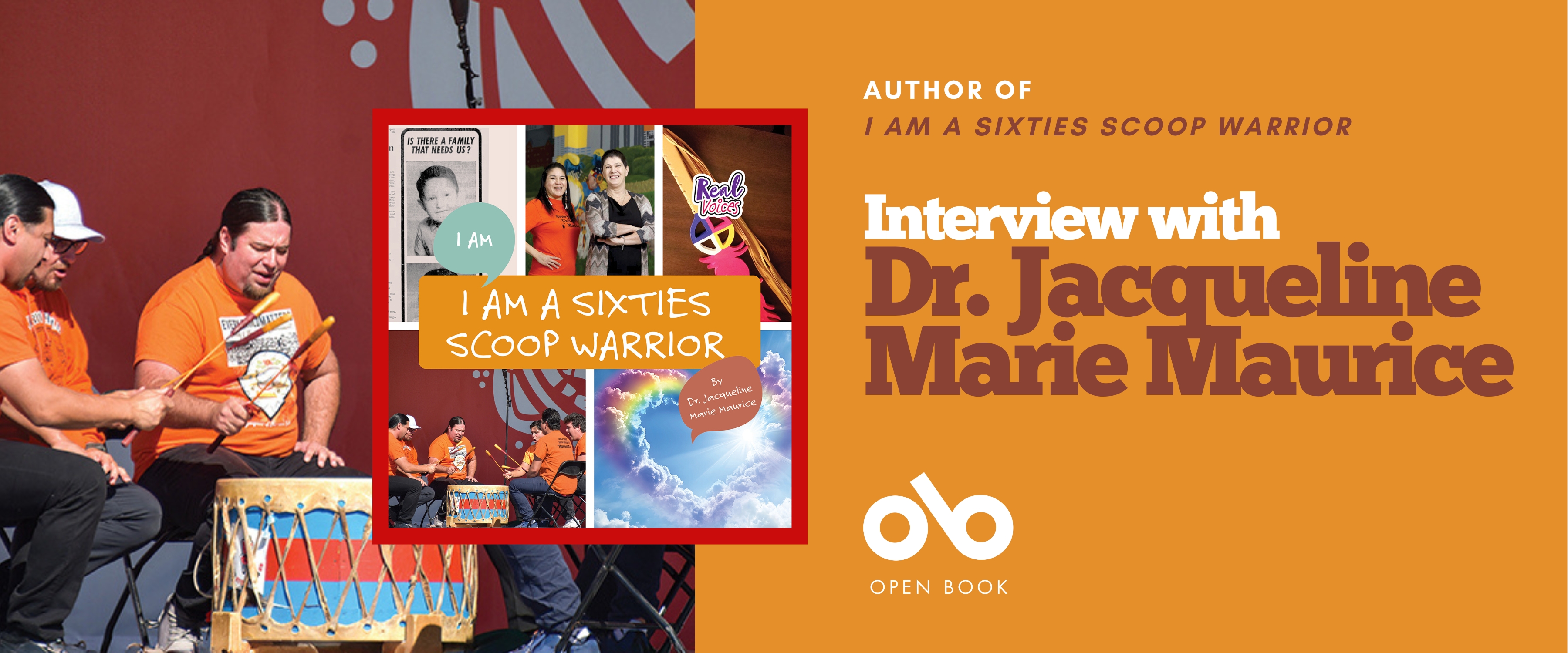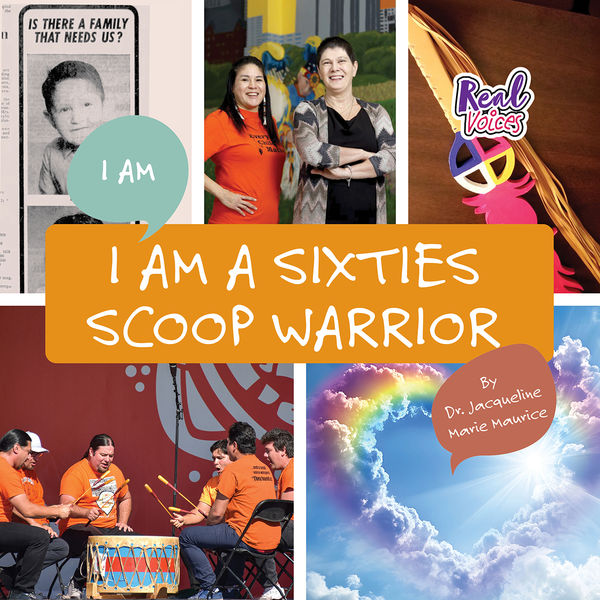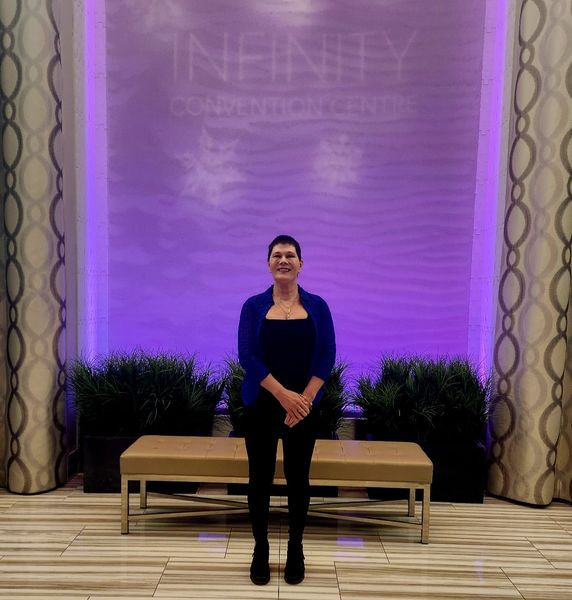Dr. Jacqueline Marie Maurice Talks About Her Important New Work of Nonfiction for Young Readers, I AM A SIXTIES SCOOP WARRIOR
Part of the empowering I AM series, I am a Sixties Scoop Warrior (Saunders Book Company/Beech Street Books) by Dr. Jacqueline Marie Maurice is a powerful firsthand account of resilience, healing, and identity. This deeply personal and educational book invites readers into the life of a Métis woman who survived the Sixties Scoop—a dark chapter in Canadian history when thousands of Indigenous children were taken from their families and placed into non-Indigenous homes.
Dr. Maurice shares her journey of loss, displacement, reconnection, and advocacy with courage and clarity. Through storytelling, archival images, and reflection, readers gain insight into the long-lasting impacts of colonial policies and the importance of cultural reclamation. Her voice is a call to truth, reconciliation, and justice for Indigenous communities across Canada.
This book fosters empathy and understanding, making it an essential resource for classrooms, libraries, and young readers seeking to engage with Indigenous voices and histories.
Check out our True Story Nonfiction interview with the author about this essential work on non-fiction for young readers!
Open Book:
Tell us about your new book and how it came to be. What made you passionate about the subject matter you're exploring?
Dr. Jacqueline Marie Maurice:
Approximately a year ago, I was approached to contribute Sixties Scoop information and knowledge to a book entitled "Métis: The People and Nation" by Arnolda Dufour Bowes.
This year, I was invited to possibly contribute a book to a series of True Stories.
My story and book is titled "I am a Sixties Scoop Warrior."
Years ago, I learned that the longest journey was from the head to the heart. I also learned that what comes from the heart reaches the heart. This is the fuel, light and energy for my passion to write this book and continue to write and, to give voice to a story that was once untold. We are silenced no longer!
Your CanLit News
Subscribe to Open Book’s newsletter to get local book events, literary content, writing tips, and more in your inbox
OB:
What was your research process like for this book? Did you encounter anything unexpected while you were researching?
DJMM:
Throughout previous and current research processes, research is insightful, reflective, empowering and affirming. Research has also allowed me to look at where I come from in order to go forward. There is true strength in this process. Importantly, research has become an inner search with a powerful journey - professionally, personally, educationally and professionally. The unexpected gift in doing this type of research is finding one's history/herstory, truth, voice, vision and purpose.
OB:
What do you love about writing nonfiction? What are some of the strengths of the genre, in your opinion?
DJMM:
Writing nonfiction ignites a fire and light which strengthens one’s commitment and follow through needed for any book process.
With an Indigenous, wholistic and qualitative genre, the merits and strengths lie in an inner journey including discovery and recovery. And recovery may extend itself to a powerful healing and wellness process - first for the writer and then for her audience, circles and community.
An Indigenous, wholistic and qualitative genre also speaks to a lived history/herstory while providing acknowledgment and validation. It is within this acknowledgment that one's story, voice and conviction is strengthened in addition to her heart and spirit.
OB:
What do you need in order to write – in terms of space, food, rituals, writing instruments?
DJMM:
To Thine Own self, be True. It is not one size fits all when considering the needs in order to write. For myself, writing is a very reflective and powerful process. To support this process, a sense of space and a sense of place is critical. And hopefully, the author can create space and place that is culturally, spiritually, emotionally and cognitively conducive to writing and the writing process. Personally, creating a balance in my mind, body, spirit and emotions also strengthens this journey.
Because Research and Writing is Ceremony, creating protective space, protective time and healthy boundaries is paramount.
For beginner writers, I would recommend the following ingredients: dream and envision your book; tap into your creative spirit; remember that the only limits that exist are the ones we set on ourselves; create and find a balance that works for you and, a balance and process that is dynamic, fluid and flexible.
OB:
What does the term creative nonfiction mean to you?
DJMM:
Creative nonfiction may include tapping into one's creative spirit; dreaming, envisioning and thinking outside the box and understanding that creative writing is dynamic, flexible and, can evolve and change as we as writers and authors grow, stretch and develop.
OB:
What defines a great work of nonfiction, in your opinion? Tell us about one or two books you consider to be truly great books.
DJMM:
The great work of nonfiction can be defined by vision; flexibility; adapting as the nonfiction writing process adapts and evolves and, knowing the niche and need of your audience, circles, community and readership.
The great work of nonfiction can also be defined by the over all evolution of the subject matter such as the Sixties Scoop where multiple stories, books, chapters, articles can be written. In this sense, nonfiction truly creates and leaves a legacy.
In relation to "great books," I would define these books as impactful, empowering and transformative. With respect to the Sixties Scoop, I would consider the following anthologies:
Out of the Shadows: Stories by Sixties Scoop Warrior, Volume 1 and Volume 2.
Anthologies are impactful and powerful as they include the collective lived experiences, collective voices and collective courage and light of Warriors and Survivors.
An additional note by the author:
Closing this Open Book Nonfiction Interview in a Good Way
My prayer and vision is this:
My work is dedicated to the Lost Children who are beginning and continuing their journey home. For those who have not yet found their voices, their stories, their belonging, their identity and relations.
May our Lost Children find their own strength, courage and voice within.
May they find love, peace and contentment.
May our Lost Children trust their deep intuitive knowing and hear the voice, guidance and teachings of our Ancestors so that they never need to walk alone.
Meegwetch
All my Relations
Waseskwin
Grandmother Rainbow Woman







